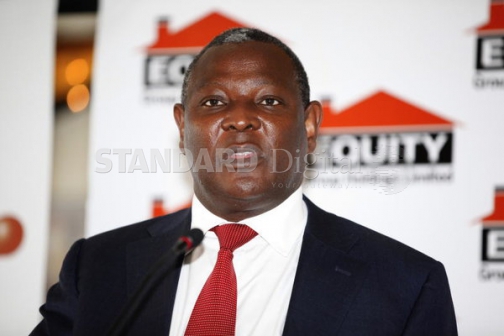
Equity Bank Group has announced that its net profit for the first nine months this year rose 18 per cent to Sh15.1 billion due to improved interest income. However, the lender is facing a challenge of slowed borrowing that has seen a surge in its liquidity.
In the same period last year, the bank posted Sh12.8 billion in net profit. According to the group’s CEO James Mwangi, the growth was driven by increased interest income and enhanced efficiency. “The cost to income ratio has moved from 53 per cent to 49.2 per cent. This means that for every shilling of income, we are only spending 49 cents to earn it,” he said at an investors’ briefing yesterday.